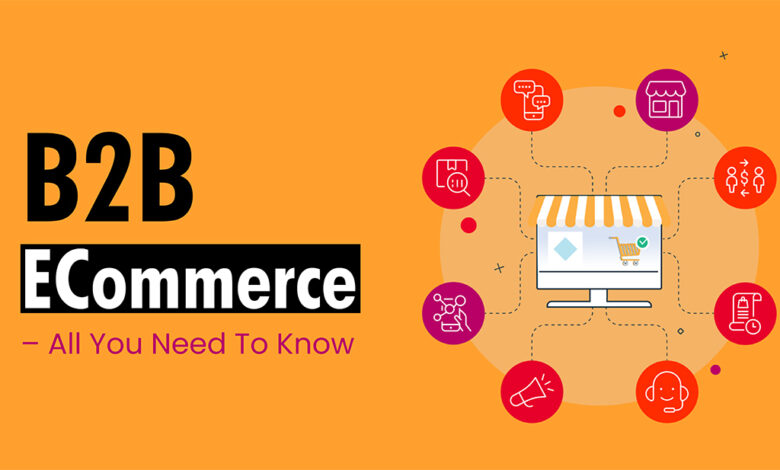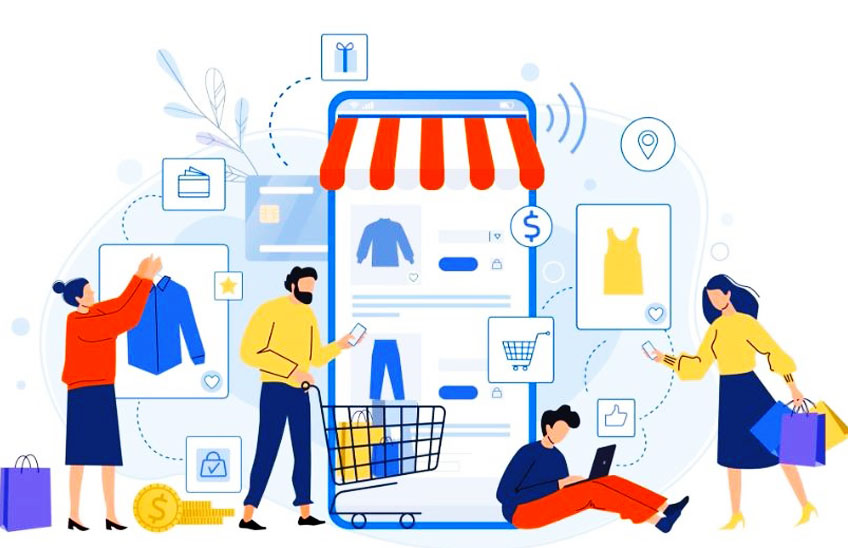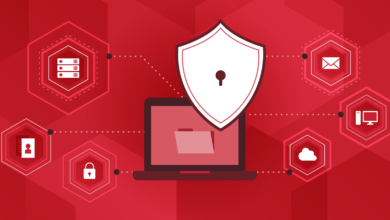
Introduction to B2B Ecommerce Marketplaces
The world of B2B ecommerce is like a bustling marketplace, vibrant and ever-changing. With businesses connecting and transacting online, understanding the B2B ecommerce marketplace trends is essential for staying ahead. Just like how a skilled navigator reads the stars to guide a ship, businesses must recognize these trends to chart their course in the digital landscape.
In this article, we’ll explore the key trends transforming B2B ecommerce and why they matter to your business.
Current Trends Shaping B2B Ecommerce
B2B ecommerce is not what it used to be. Trends are rapidly evolving, and businesses must adapt to thrive. Let’s dive into some of the most impactful trends currently shaping this landscape.
The Rise of Mobile Commerce

Mobile commerce, or m-commerce, is revolutionizing the way businesses engage with clients. Just as we’ve seen a shift in personal shopping habits toward mobile devices, B2B buyers are also embracing mobile platforms for purchasing decisions. Companies must ensure their ecommerce sites are mobile-friendly to capture this growing audience.
Personalization: The New Standard
Imagine walking into a store where every item feels tailored just for you. That’s what personalization in B2B ecommerce aims to achieve. Buyers expect customized experiences based on their preferences and behaviors. Companies that can deliver personalized recommendations and tailored content are likely to foster stronger relationships and increase sales.
Integration of AI and Automation
Artificial intelligence (AI) and automation are no longer buzzwords; they are essential tools in the B2B ecommerce arsenal. AI can analyze customer data to predict buying patterns, while automation streamlines processes, making transactions quicker and more efficient. Businesses leveraging these technologies can gain a significant competitive edge.
Importance of Data Analytics
Data is the new oil. In the B2B ecommerce marketplace, analytics help businesses understand customer behavior, track performance, and make informed decisions. By analyzing purchasing trends and customer feedback, companies can optimize their offerings and enhance user experience.
Sustainability in B2B Ecommerce

Today’s consumers are more environmentally conscious. Businesses are increasingly adopting sustainable practices, not just as a trend, but as a core value. From eco-friendly packaging to transparent supply chains, sustainability is becoming a key factor in purchasing decisions, influencing brand loyalty.
The Shift to Multi-Channel Selling
Gone are the days of relying on a single sales channel. Businesses are now engaging customers across multiple platforms—from websites and mobile apps to social media and marketplaces. This multi-channel approach allows companies to reach a broader audience and provide a seamless shopping experience.
User Experience: A Competitive Edge
Just like a well-designed storefront can attract foot traffic, a user-friendly website can enhance customer engagement in the B2B realm. Companies focusing on intuitive design, easy navigation, and quick load times are more likely to retain customers and drive conversions.
Emerging Payment Solutions
With advancements in technology, payment solutions are evolving. Options like digital wallets, cryptocurrency, and buy-now-pay-later services are gaining traction. B2B ecommerce platforms must adapt to these changes to meet customer expectations and facilitate smoother transactions.
The Role of Social Media in B2B Sales
Social media is not just for B2C; it’s becoming increasingly significant in the B2B space. Platforms like LinkedIn are invaluable for networking, brand promotion, and lead generation. Businesses should leverage social media to share insights, engage with customers, and drive traffic to their ecommerce sites.
Challenges Facing B2B Ecommerce Marketplaces
While opportunities abound, the B2B ecommerce marketplace is not without its challenges. Issues such as cybersecurity threats, complex supply chains, and adapting to rapid technological changes can pose significant hurdles for businesses. Resolving these issues is essential to long-term growth.
Future Predictions for B2B Ecommerce

What does the future hold? As technology continues to evolve, we can expect further innovations in B2B ecommerce. Enhanced AI capabilities, greater emphasis on customer experience, and continued growth of mobile commerce will likely shape the landscape in the coming years.
Conclusion
In the rapidly changing world of B2B ecommerce marketplaces, staying informed about trends is vital for success. Embracing mobile commerce, personalization, AI integration, and sustainability can help businesses not only survive but thrive in this digital marketplace. As we navigate these waters, remember that understanding and adapting to trends will keep your business afloat.
FAQs
What is a B2B ecommerce marketplace?
A B2B ecommerce marketplace is an online platform where businesses can buy and sell products or services to other businesses.
How important is personalization in B2B ecommerce?
Personalization is crucial as it enhances customer experience and increases the likelihood of repeat business.
What role does AI play in B2B ecommerce?
AI helps analyze data to predict buying behaviors, automate processes, and improve overall efficiency in transactions.
Why is mobile commerce on the rise in B2B?
Mobile commerce is growing due to the increasing use of smartphones and tablets by business professionals for making purchasing decisions.
What are the main challenges facing B2B ecommerce today?
Challenges include cybersecurity risks, adapting to technological changes, and managing complex supply chains.




One Comment